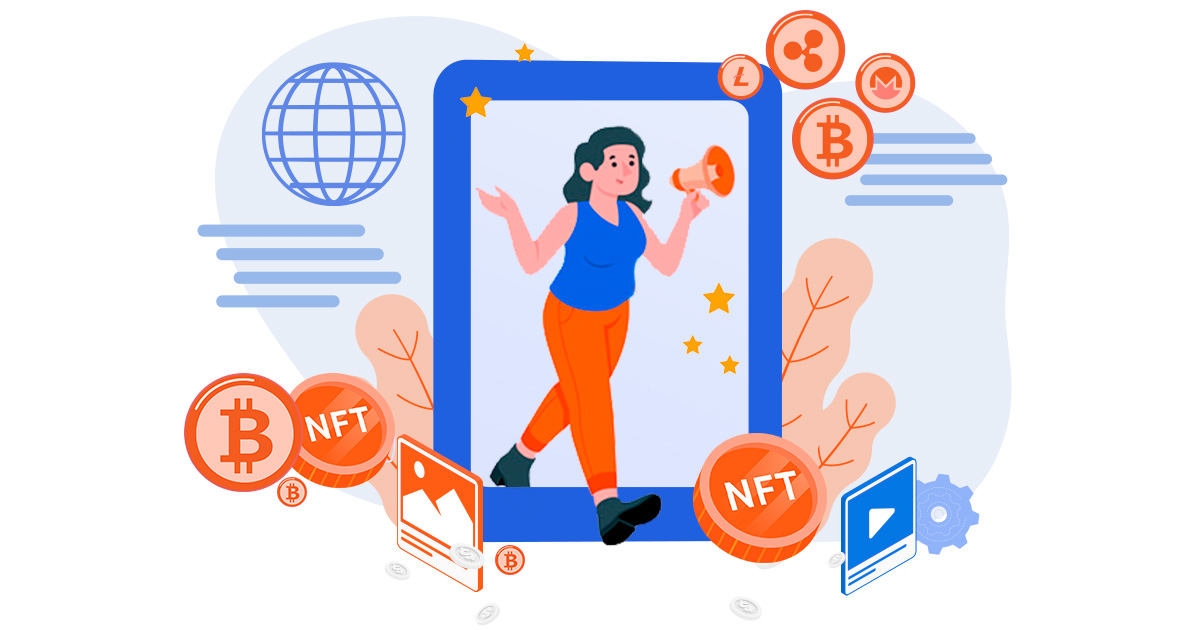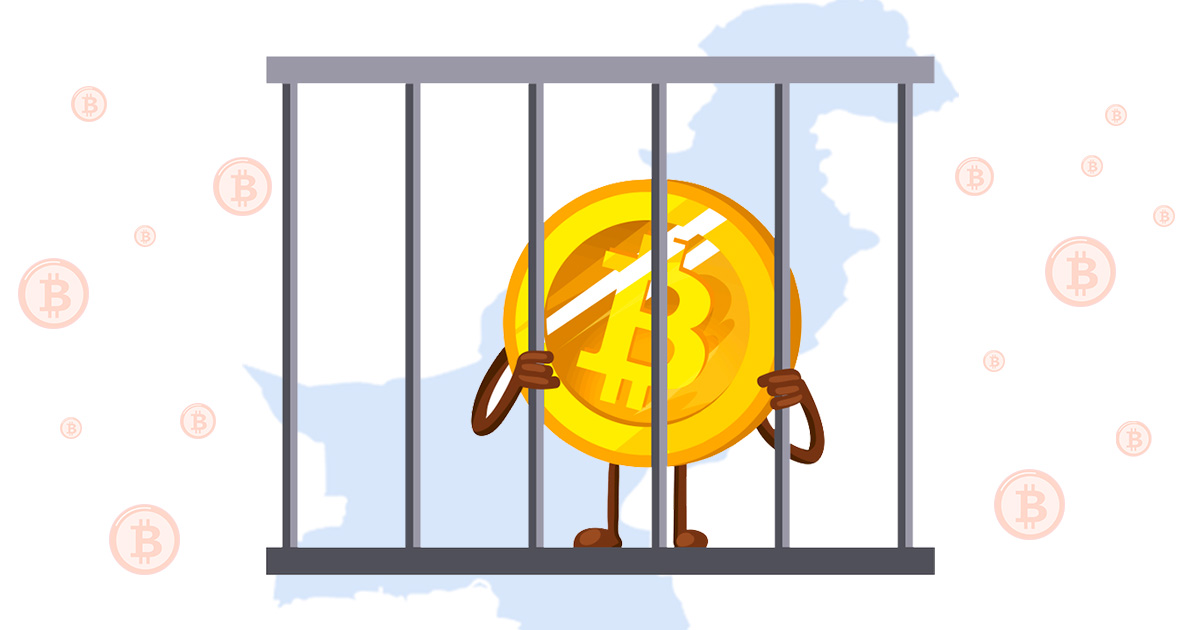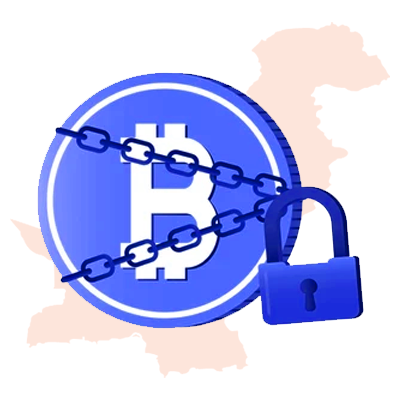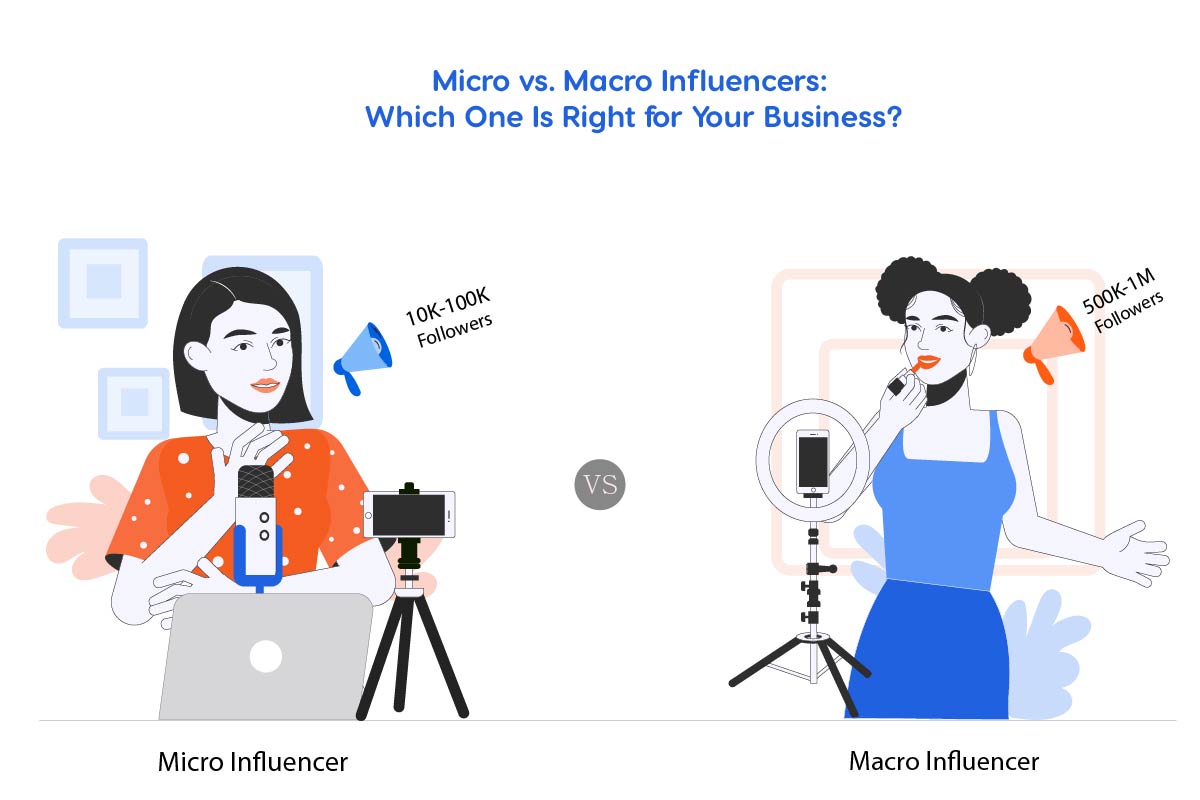Cryptocurrencies and NFTs have recently become hot topics with the total value of cryptocurrency assets reaching an incredible $3 trillion and the NFT market generating over $23 billion in trading volume in 2021 alone. However, they remain controversial with countries like Pakistan and China banning crypto-related activities. Despite their growing prominence, many people are still unclear about what they truly are. In this thorough article, our Tashheer research team has explained how Pakistani influencers are using Cryptocurrency and NFTs.

Ready to Elevate Your Business? Explore Our Influencer Marketing Solutions!
What is Cryptocurrency?
Cryptocurrencies are digital assets managed through a peer-to-peer network called blockchain. Blockchain ensures a secure and tamper-proof record of transactions, keeping track of ownership. The name cryptocurrency comes from the use of cryptographic algorithms that prevent counterfeiting or double-spending, making them a secure medium of exchange. Popular examples include Bitcoin and Litecoin. Cryptocurrencies are decentralized, meaning they operate without central authorities like banks or governments, making them less vulnerable to government interference.
Cryptocurrencies are used for a variety of reasons, as it has significant advantages:
NFTs and the Creative Economy
Non-fungible tokens (NFTs) have opened a new frontier for artists, musicians and content creators in Pakistan. NFTs allow creators to sell their work as unique digital assets on blockchain platforms, bypassing traditional intermediaries. Pakistani influencers particularly those in the arts and entertainment sectors, have started using NFTs to monetize their creativity. For example, digital artists like Mariam Aftab have shown their NFT collections on platforms like OpenSea, attracting both local and international buyers. Similarly, musicians have begun releasing exclusive tracks and albums as NFTs that offer fans a chance to own a piece of their creative legacy.
The Rise of Cryptocurrency Among Influencers
Cryptocurrency is a decentralized digital currency that has gained traction in Pakistan despite regulatory challenges. Influencers in the country have emerged as key players in creating awareness about crypto trading, blockchain technology and investment opportunities. Platforms like Instagram, YouTube and TikTok are filled with influencers sharing tutorials, tips and market analysis about cryptocurrencies like Bitcoin, Ethereum and Binance Coin. Influencers such as Crypto PK and Pak Crypto Miner are famous for their educational content personalized to Pakistani audiences. By simplifying complex topics like blockchain technology and trading strategies, they have enabled a new wave of crypto enthusiasts to navigate this space. By simplifying complex topics like blockchain technology and trading strategies, they have enabled a new wave of crypto enthusiasts to navigate this space.
| Aspect | Details |
|---|---|
| Type of Currency | Decentralized Digital Currency (Cryptocurrency) |
| Key Platforms | Instagram, YouTube, TikTok |
| Popular Cryptocurrencies | Bitcoin, Ethereum, Binance Coin |
| Influencers | Crypto PK, Pak Crypto Miner |
| Content Focus | Tutorials, Tips, Market Analysis, Educational Content |
| Target Audience | Pakistani Crypto Enthusiasts |
| Topic Simplification | Explaining Blockchain Technology, Trading Strategies, Investment Opportunities |
| Influencer Impact | Creation of awareness, empowering new crypto enthusiasts, enabling navigation of the crypto space |
Want to find the right influencers for your brand in Pakistan? Here are the top 8 AI tools for identifying influencers!
Challenges and Controversies
Despite its growing popularity, this crypto and NFT space in Pakistan faces several challenges. The regulatory environment remains uncertain with the State Bank of Pakistan having issued warnings about the risks associated with cryptocurrency. Also, scams and fraudulent schemes have proliferated, tarnishing the industry’s reputation. Influencers promoting cryptocurrency often face backlash for their lack of transparency regarding paid partnerships. The absence of clear guidelines for advertising financial products exacerbates this issue, leaving audiences vulnerable to misinformation.

The Way Forward
As the crypto and NFT world evolves, Pakistani influencers are likely to play an even bigger role in shaping public opinion and driving adoption. By focusing on education and ethical promotion, they can help demystify these technologies and promote a culture of informed investment. Moreover, collaborations with tech companies and regulators could pave the way for a more secure and regulated environment, ensuring the long term sustainability of this digital revolution.
The Ban on Cryptocurrencies in Pakistan
Cryptocurrency activity has grown rapidly in recent few years and continues to increase. However, some major economies including China and Saudi Arabia, have banned cryptocurrency trading. In 2018, the State Bank of Pakistan (SBP) issued a directive banning banks from dealing with cryptocurrency exchanges. Despite these challenges, the cryptocurrency market in Pakistan is thriving. It is estimated that over 9 million Pakistanis own cryptocurrencies with a total value of around $20 billion. Even with the SBP’s ban, many Pakistanis have found alternative ways to invest in crypto. Many investors use external bank transfer apps to trade cryptocurrencies. Since they cannot use Pakistani Rupees (PKR) directly, they first transfer money in rupees to someone else and then buy crypto. The exchange rate at the time affects the cost of the transaction and smaller purchases can be more expensive. Many Pakistanis prefer to use USDT (Tether) as a way to invest in cryptocurrencies.

How to avoid fake influencers in Pakistan? Let’s read more about it
Final Words
Pakistani influencers are at the forefront of this cryptocurrency and NFT movement, using their platforms to educate and engage audiences. In this thorough article, our Tashheer research team has explained to us how Pakistani influencers are using cryptocurrencies and NFTs. As awareness grows and regulatory clarity improves, the role of influencers in bridging the gap between technology and the masses will become increasingly vital. By embracing digital currencies and non-fungible tokens, they are not only capitalizing on the growing interest in these technologies but also educating their audience about their potential. This shift towards crypto and NFTs reflects the broader global trend of digital transformation that offers influencers new opportunities for creative expression and financial growth.





